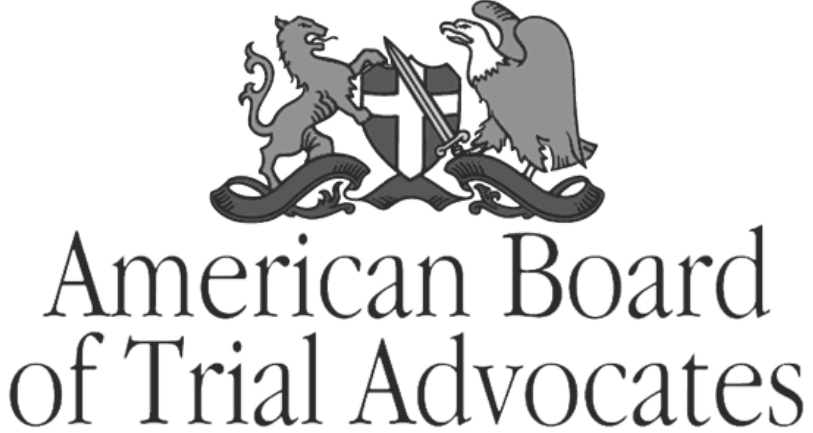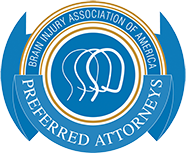Why Do You Need a Virginia Medical Malpractice Lawyer?


Medical malpractice and negligence lawsuits are some of the most complicated personal injury cases. Trust an experienced medical malpractice lawyer in Virginia to understand the details of the law, your medical records, and how to calculate your long-term care needs.
The Smith Law Center has been successfully handling hospital negligence cases for close to 70 years. We have a proven track record for holding healthcare workers accountable when they have failed to meet the minimum standard of care. Whether you discovered this page for your own needs or on behalf of a loved one, you can trust our team of experienced advocates to protect your rights.
Below you will find helpful information for understanding when you may have grounds for legal action, as well as other necessary points to consider if you are thinking about filing a lawsuit against a medical provider for negligence.
If you believe you were injured or lost a loved one due to a healthcare professional’s carelessness, please contact us at (757) 244-7000. We are available 24/7 to answer your questions free of charge.
What Kind of Settlement Can a Virginia Medical Malpractice Attorney Help You Secure?

In a medical malpractice lawsuit, a lawyer can help secure various types of damages on behalf of the plaintiff, which are intended to compensate for the harm caused by medical negligence.
Some common types of damages that a lawyer may pursue include:
- Compensatory damages: These damages are designed to compensate the plaintiff for the actual losses and expenses resulting from medical malpractice. They can include:
- Economic damages: These cover tangible financial losses such as medical bills, hospitalization costs, rehabilitation expenses, lost wages, future medical expenses, and any other related financial burdens.
- Non-economic damages: These are intangible losses that do not have a direct monetary value. Examples include pain and suffering, emotional distress, loss of consortium (marital health), loss of enjoyment of life, and mental anguish.
- Punitive damages: In some cases, if the defendant’s actions were deemed particularly reckless or malicious, the court may award punitive damages. These damages go beyond compensating the plaintiff and are intended to punish the defendant and deter similar misconduct in the future.
- Wrongful death damages: If the medical malpractice resulted in the death of the patient, the lawyer can pursue wrongful death damages on behalf of the surviving family members. These damages typically cover funeral expenses, loss of financial support, loss of companionship, and emotional trauma experienced by the family.
It’s important to note that the availability and limits of damages can vary significantly based on the jurisdiction and the specific laws governing medical malpractice in that jurisdiction. Consulting with an experienced medical malpractice attorney in your local area will provide you with the most accurate and up-to-date information regarding the damages that can be sought in a particular case.





If you believe you or a loved one were injured as a result of a doctor’s carelessness or negligence, please contact the medical malpractice lawyers in Virginia at The Smith Law Center by calling (757) 244-7000 today for a free case review.

About Smith Law Center
.. I have the pleasure of working with the team at the Smith Law Center regularly.…
They are well rounded, and their commitment to their clients is top notch.
SHANNON L
What Types of Malpractice Does a Virginia Medical Negligence Lawyer Handle?
Here is a wide overview of the types of medical malpractice cases our lawyers at the Smith Law Center can handle:
Anesthesia Errors
A study by the medical journal Anesthesiology found anesthesia mistakes are linked to about 34 deaths in the United States annually. These errors are also a contributing factor in more than 275 other patient deaths. Human error is a factor in up to 87% of cases.
The most common types of anesthesia errors include:
- Failure to properly monitor patients: The failure to monitor patients correctly during surgery can lead to serious or fatal injuries in the operating room, including brain injury or death. The anesthesiologist is responsible for regulating a patient’s level of consciousness during procedures as well as oxygen levels.
- Administering too little anesthesia: The level of anesthesia given to a patient is based on body weight, gender, and age. Too little anesthesia can lead to a terrifying experience during a surgical procedure in which the patient is conscious but paralyzed and unable to speak. This kind of anesthesia error can result in extreme psychological trauma.
- Anesthesia overdose: An anesthesia overdose refers to the excessive administration of anesthetic agents that can lead to a range of adverse effects. It can result in a deep state of unconsciousness, respiratory depression, cardiovascular instability, and even potentially life-threatening complications. Immediate medical attention is crucial to manage the overdose and ensure the patient’s safety.
- Failure to correctly intubate: The anesthesiologist must intubate the patient during surgery to allow breathing. This is crucial because a failure to maintain proper airflow to the patient can result in brain injury or even death. Ensuring proper breathing is a meticulous process. Anesthesiologists may cause injuries during intubation by failing to take adequate care.
- Failure to research a patient’s medical history: Medical professionals must check records to establish whether a patient is allergic or will have a reaction to certain drugs used during anesthesia.
Even patients who received a local anesthetic for minor surgery can suffer serious side effects from anesthesia errors. There have been well-documented cases in Virginia of children who died under anesthesia administered by dentists. Contact the Smith Law Center at (757) 695-9425 to discuss your situation and possibly secure representation right away.
Birth Injuries
As one of the most complex types of medical malpractice lawsuits, birth injuries due to a medical professional’s error are unfortunately common. Depending on the type of birth injury, symptoms may not be obvious right away and won’t become apparent until a child shows developmental delays.
Some common birth injuries include:
- Brachial plexus injuries such as Erb’s palsy
- Fractures, facial nerve injuries, and intracranial hemorrhages
- Conditions like cerebral palsy, intellectual disabilities, and developmental delays caused by oxygen deprivation (anoxia or hypoxia) or trauma during labor and delivery.
Proper medical evaluation and intervention are important to diagnose and manage these injuries and conditions promptly.
When a child suffers from a birth injury, the parents may have grounds to file a medical malpractice lawsuit against a hospital. It is often a challenge to find out what really happened in the delivery room, and an experienced Virginia birth injury lawyer can investigate the circumstances and hold medical professionals to account.
Botched Surgery
Mistakes made by doctors during surgery can be devastating to a patient, causing loss of limbs or organs, disfigurement, and painfully unnecessary recovery periods.
Causes of botched surgery include:
- Surgeon fatigue or intoxication: Demanding schedules and surgeon burnout can dull a medical specialist’s eye for detail, or cause them to use mind-altering substances to stay awake or relax. When surgeons operate on patients while they are overexerted or under the influence, they may be held liable for their mistakes.
- Inadequate preparation, supervision, or aftercare: Failing to complete the pre-operation checklist, cases of junior doctors who have been allowed to perform operations without adequate training or supervision, or failure to follow up and look for signs of infection or other complications — each of these scenarios could be grounds for a malpractice lawsuit.
- Performing an incorrect procedure: Also known as wrong-side or wrong-site surgery, these errors could mean a surgeon removes the wrong body part, operates on the wrong joint, or operates on the wrong patient. This is a devastating ordeal to recover from, causing unnecessary pain and suffering for the patient.
- Defective equipment: In certain cases, defective equipment can cause injuries during surgeries. Equipment such as the Da Vinci robotic system sparked lawsuits against the manufacturer after patients suffered burns. Defective forceps can cause head trauma to infants during birth.
- Leaving objects in a patient: A “gossypiboma” is the term used to refer to a foreign object that is left behind in a body cavity during surgery, such as a mass of cotton matrix, a sponge, or metal tools like surgical clamps. These can cause severe internal damage or serious infections.
If you believe you have been harmed by botched surgery, seek medical attention immediately. Contact the hospital and inform authorities. You should also speak to a medical malpractice lawyer in Virginia as soon as possible for advice on how to proceed.
Hospital Infections
Hospitals, outpatient facilities, nursing homes, and other medical treatment centers owe a duty of care to their patients to provide a clean and infection-free environment. However, about 14,000 Americans pick up infections at hospitals in any given year. Centers for Disease Control and Prevention (CDC) estimates one in 20 patients will contract a hospital-associated or hospital-acquired infection (HAI) every day.
The top ten most common hospital infections include:
- Pneumonia 22%
- Surgical-site infection 22%
- Gastrointestinal infections 17%
- Urinary tract infections 13%
- Primary bloodstream infections 10%
- Eye, nose, ear, throat, or mouth infections 6%
- Lower respiratory tract infections 4%
- Skin and soft-tissue infections 3%
- Cardiovascular system infections 1%
- Bone and joint infections 1%
The most commonly reported pathogen related to hospital-associated infections is called Clostridium difficile, which is linked to 12% of healthcare-associated infections. Also known as C. diff., it is a relatively recent strain that has grown more virulent and resistant to drugs.
Another prevalent hospital-related infection is sepsis, which can cause a patient’s body to shut down, injuring tissues and organs as a result of the infection. It can be fatal, and every second counts in terms of diagnosis and treatment. Medical staff are responsible for recognizing the warning signs and symptoms of sepsis in patients. Failure to do so may be considered medical malpractice.
Hospitals may be liable for infections if they failed to create a sterile environment, or failed to diagnose patients with infections promptly before they spread the infection. If you were injured due to a hospital-acquired infection, you may have grounds for legal action. Contact the Virginia medical malpractice lawyers at the Smith Law Center today at (757) 695-9425.
Misdiagnosis or Delayed Diagnosis
When a doctor’s diagnosis error leads to incorrect, delayed, or lack of treatment, the patient’s condition can worsen.
Common types of medical misdiagnosis include:
- Asthma: Asthma may be wrongly diagnosed as recurring bronchitis with possibly fatal consequences.
- Cancer: A delayed cancer diagnosis or mistakenly determining it to be benign could be fatal for a patient. Alternatively, patients can also receive an incorrect cancer diagnosis, causing them to unnecessarily suffer harrowing treatments like chemotherapy and radiation. Lymph node inflammation can also be mistaken as flu.
- Celiac disease: Many people with Celiac are mistakenly diagnosed with irritable bowel syndrome (IBS), diverticulitis, and other intestinal conditions. This can lead to long-term intestinal damage or severe reactions.
- Heart attack: Mistaking a heart attack for a panic attack, indigestion or a muscular issue can be deadly for a patient.
- Stroke: Research by the American Heart Association found younger people who suffer stroke symptoms are frequently misdiagnosed with migraines, vertigo, or are believed to be intoxicated from alcohol.
In most medical misdiagnosis lawsuits, the doctor who made the diagnosis is the only person who can be sued. In rare cases, other medical professionals can be sued. However, nurses, lab technicians, consultants, and specialists can only be sued if they played a role in the negligent misdiagnosis.
Not all instances of incorrect diagnosis are grounds for legal action. The key question is whether the doctor breached the relevant medical standard of care in the circumstances. Would a doctor with similar training and background have made the same diagnosis? Your medical malpractice attorney must investigate whether the healthcare professional acted competently.
The Smith Law Center files lawsuits against hospitals, doctors, and nurses across the country for medical malpractice and negligence. If you suspect an irregularity in the treatment of your loved one, please talk to us. We offer free consultations — call us at (757) 695-9425 to discuss your options.
Contact Experienced Virginia Medical Negligence Attorneys

The work your lawyer does for a medical malpractice or negligence case includes interpreting the law and legalese, supplying valuable resources like specialists, investigators, and expert witnesses, and delivering seasoned negotiation skills. The right lawyer for you not only understands the monetary value and projected worth of your losses but will be able to effectively convey that in a negotiation or at trial to secure the best possible outcome for your case.
Why Hire the Smith Law Center in Virginia
You deserve an attorney with the experience, poise, and tenacity necessary to face the intimidation of insurance companies and negotiate favorable compensation on your behalf. At the Smith Law Center, our lawyers are fully prepared to take your case to trial if necessary, and can litigate your case before a judge or jury.
At The Smith Law Firm, we understand that this may be a trying time for you and your family. If you have questions about your potential case or would like to understand your options, the Virginia medical malpractice lawyers at the Smith Law Center are available to help. Please contact us for a free, private case review at (757) 695-9425, and we will be happy to discuss the details surrounding your situation.
Our lawyers are more than lawyers. They are people who understand your injuries and the law that surrounds your options when it comes to holding others accountable.
FAQ
Virginia Medical Malpractice Lawsuit FAQs
What is “informed consent” for medical procedures?
Informed consent requires a doctor to provide information about the medical condition of a patient and the available medical care options before a procedure. Patients must be informed of the diagnosis, the purpose and nature of the suggested treatment, the procedure’s benefits, and any potential risks or side effects. Patients also need to be made aware of any feasible alternative treatments available to them.
Informed consent forms the basis of mutual trust between a healthcare provider and a patient. If a doctor fails to adequately inform a patient about the possible implications of a medical procedure and he or she develops complications, the doctor can be sued.
What defines medical malpractice or hospital negligence?
In short, medical malpractice or hospital negligence occurs when a patient is injured as a result of a healthcare professional’s intentional or unintentional negligence.
The American Board of Professional Liability Attorneys (ABPLA) lists the criteria for defining medical malpractice and hospital negligence as: (1) the standard of care was violated, (2) doctor negligence resulted in injury to the patient, and (3) significant damages resulted from the injury.
Who can be held liable in a medical malpractice case in Virginia?
Several parties can be held liable in these types of cases, including individuals like doctors, surgeons, nurses, dentists, anesthesiologists, and obstetricians. Medical establishments can also be sued, including hospitals, outpatient facilities, and nursing homes.
Your attorney will investigate your injury fully to hold all liable parties and institutions accountable.
How long do I have to file a medical malpractice lawsuit in Virginia?
If you believe you were injured as a result of doctor or hospital negligence, there is a time limit during which you are able to seek damages. Under Virginia law, the deadline to file a medical malpractice lawsuit is within two years from the date the injury occurred.
This is known in the legal realm as the statute of limitations. There are certain exceptions to this, though they apply in special circumstances, such as when a patient could not reasonably detect an injury. Contact the Smith Law Center as soon as possible for a free consultation at (757) 244-7000 — we’ll do all we can to ensure you have access to justice before this deadline runs out.





